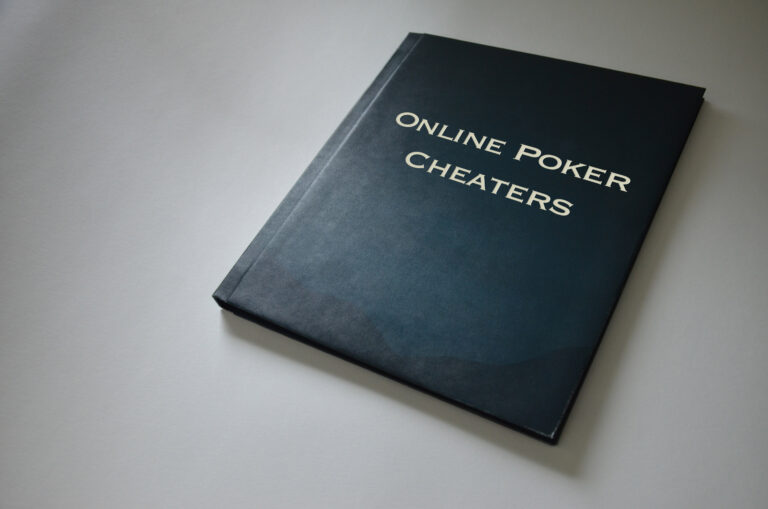
Cheating at online poker in New Jersey, Delaware, or Michigan could soon land players on a public watch list in Nevada if a bill currently under consideration passes. AB 380 calls for a list of players banned from online gambling platforms. It would require operators to report such bans if they hold a license in Nevada or any member state of the Multi-State Internet Gaming Agreement (MSIGA).
The Nevada Gaming Control Board (NGCB) famously keeps a list of excluded persons, colloquially known as the Black Book. However, it only applies to retail casinos and includes only a few dozen of the most egregious repeat offenders.
By contrast, what AB 380 proposes is that anyone banned by any online gambling site would go on the list.
AB 380 doesn’t require other operators to exclude players who appear on the list. However, that might be the outcome if operators decide that serving such players incurs more risk than they’re worth. The list would be public, so online operators and other businesses could do whatever they like with the information.
Whereas the NGCB maintains the retail exclusion list, responsibility for the online list would fall to the other regulatory body, the Nevada Gaming Commission (NGC).
The proposed law was submitted by Assembly Speaker Steve Yeager and involved input from professional poker player Sara Ralston. The bill states:
The Commission shall by regulation provide for the establishment of a list of persons who have been suspended or banned from an interactive gaming system for cheating. Any such list is a public record and must include, without limitation, the interactive gaming account name, full name and date of birth of any such person.
Some members of the online poker community have been calling for such a list for years. However, operators might run afoul of privacy laws if they attempt to issue such a list of their own accord.
Operators Required to Share Even if Not Licensed in Nevada
At first glance, the law might appear unnecessary since Nevada is a single-operator market for online gambling.
Although iGaming – including online casinos – has been possible under Nevada law since 2013, the regulators have only authorized online poker. The first operator to launch, Ultimate Poker, shut down after only a year. Since then, WSOP.com has been the only online poker operator dealing hands in Nevada.
However, the bill wouldn’t require only WSOP to publicize its ban list. It extends the requirement to operators not licensed in Nevada, provided they hold a license in “certain other states,” namely:
…signatory governments to an agreement entered into by the Governor pursuant to NRS 463.747.
NRS 463.747 is the portion of Nevada law allowing the state to enter into compacts like MSIGA. That agreement allows online poker operators to share traffic between their sites in various member states. Nevada initially struck that deal with Delaware, but New Jersey and Michigan have since joined. Pennsylvania may do so soon.
In other words, operators in states that share traffic with Nevada would have to submit ban reports for the watch list. That would apply even to operators without a site in Nevada, like BetMGM Poker and PokerStars.
Ordinarily, forcing such sites to comply would be outside Nevada’s jurisdiction. However, MSIGA includes a commitment from member states to cooperate and share data. Article VIII: Cooperation and Transparency states:
Member States shall take all reasonable steps to ensure cooperation among their respective law enforcement agencies […] Licensees shall be required, upon demand, to provide the Licensing Body of any Licensing State with the data reasonably necessary to properly perform any audit deemed necessary by a member State, and such data shall be provided by the Licensing Body to its counterpart in the relevant Patron State.
Suspected Cheaters Can Appeal
The proposal could see pushback because operators have no obligation to provide suspected cheaters with due process. Online gambling sites’ terms & conditions invariably reserve the right to ban the accounts of anyone they have determined to be cheating. They do not need to prove the cheating happened, and there’s typically no recourse for anyone who feels they’ve been falsely accused.
Fortunately, AB 380 directs the NGC to establish an appeals process:
The regulations adopted by the Commission pursuant to this section must […] authorize a person to appeal his or her listing upon showing that the person’s name was wrongfully included on the list established pursuant to this section.
However, this still inverts the burden of proof compared to what we expect from the criminal justice system. Moreover, it’s hard to prove conclusively that something didn’t happen.
An additional uncertainty is how operators themselves would react to the law. Site security teams are highly secretive about how they catch cheaters, as knowledge of their methods would compromise future efforts. They would not want that information to become public through an appeals process. At the same time, it would be awkward for a site to keep someone on its ban list who had successfully appealed due to a lack of evidence.
According to the Nevada Independent, Ralston says that some amendments to the bill are already in the works.





